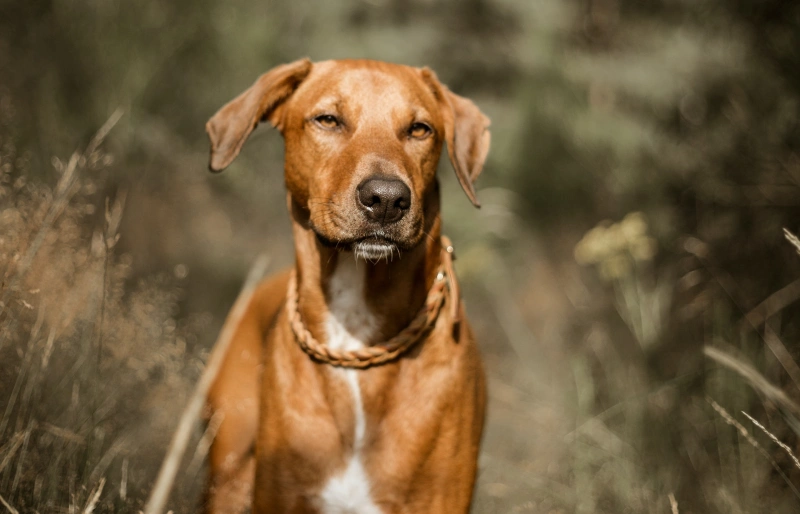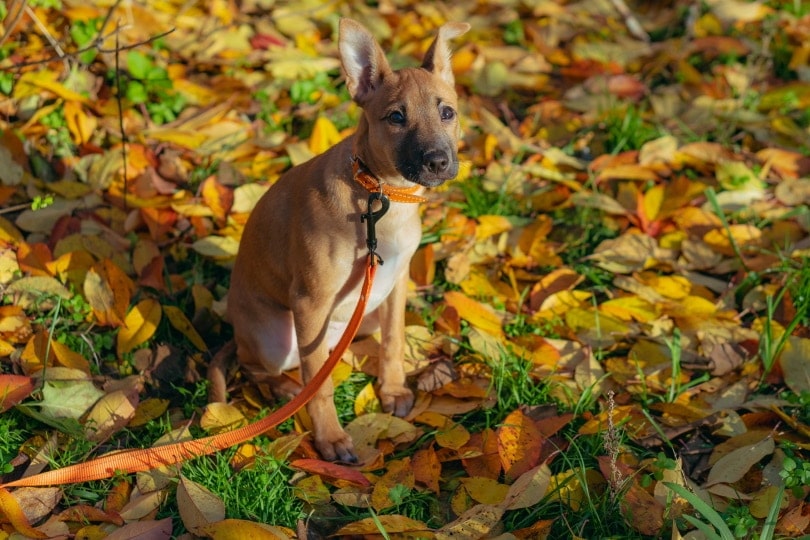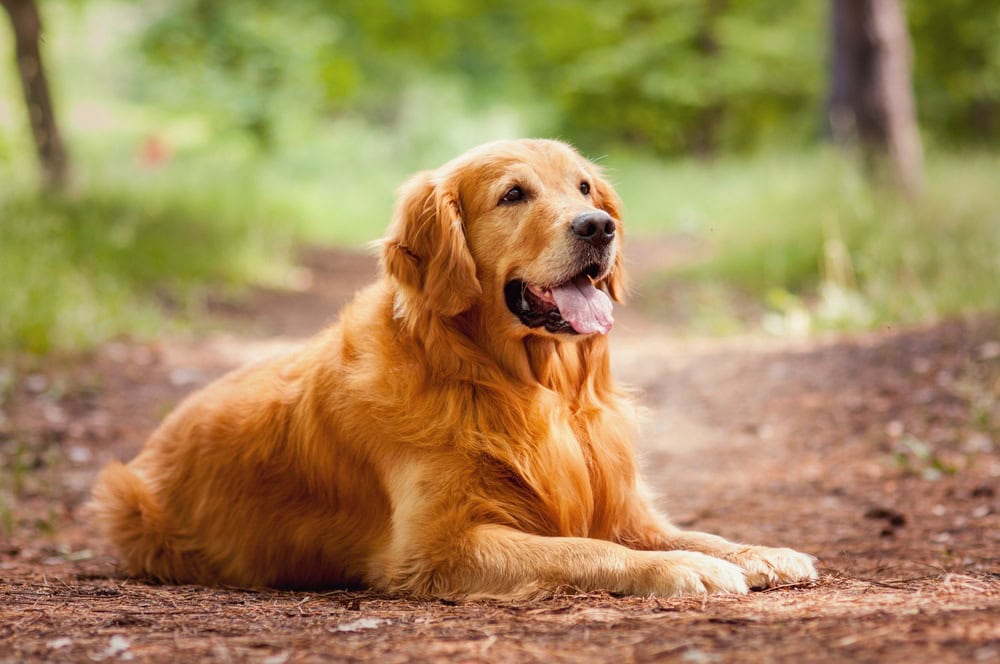Is Tea Tree Oil Safe for Dogs? Vet-Reviewed Cautions & Safety Guide
By Ed Malaker
Updated on

Click to Skip Ahead
If your dog just ingested tea tree oil, it’s natural to be concerned, as many essential oils are toxic to canines. Unfortunately, tea tree oil is one of these, so your dog may need to see the vet if they have consumed it. Keep reading as we discuss how dangerous tea tree oil is for pets and the signs that you should watch for to know if your pet is in distress and when to call the vet.
The Potential Dangers of Tea Tree Oil for Dogs
Tea tree oil can be toxic to dogs if ingested in large quantities because it contains terpenes. These organic compounds can cause lethargy, weakness, vomiting, excessive drooling, and even coma or death in severe cases. The severity of the signs depends on how much tea tree oil your dog consumes and how big they are. Small dogs are more susceptible to toxicity from tea tree oil, and even a small amount can cause severe signs. Additionally, if your dog has an existing medical condition, tea tree oil ingestion can exacerbate the condition.
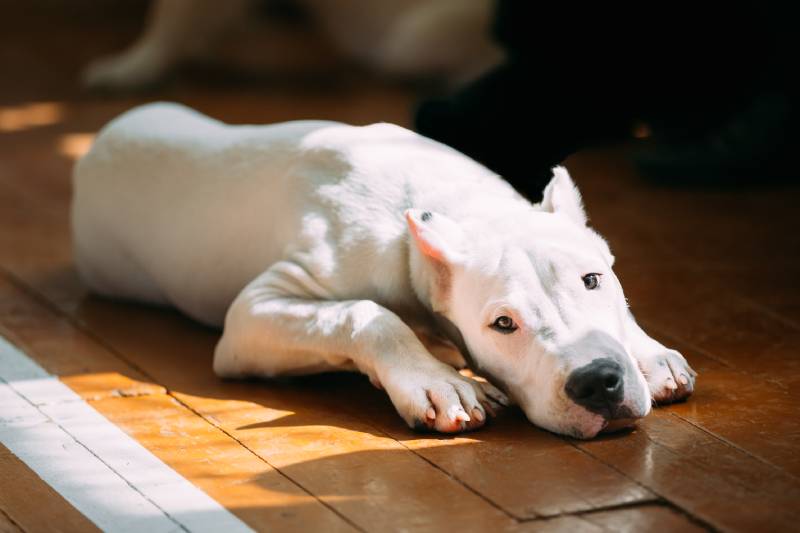
Signs That Your Dog May Have Ingested Tea Tree Oil
If you suspect that your dog has ingested tea tree oil, it’s important to watch for the following signs:
- Lethargy and weakness
- Drop in body temperature
- Vomiting and diarrhea
- Loss of coordination
- Skin rashes
- Tremors and seizures
- Coma
If you notice any of these, contact your veterinarian immediately. They will be able to determine the severity of your dog’s condition and provide the appropriate treatment. Your vet will also want to know how long it has been since your dog ingested the tea tree oil, so record the time.
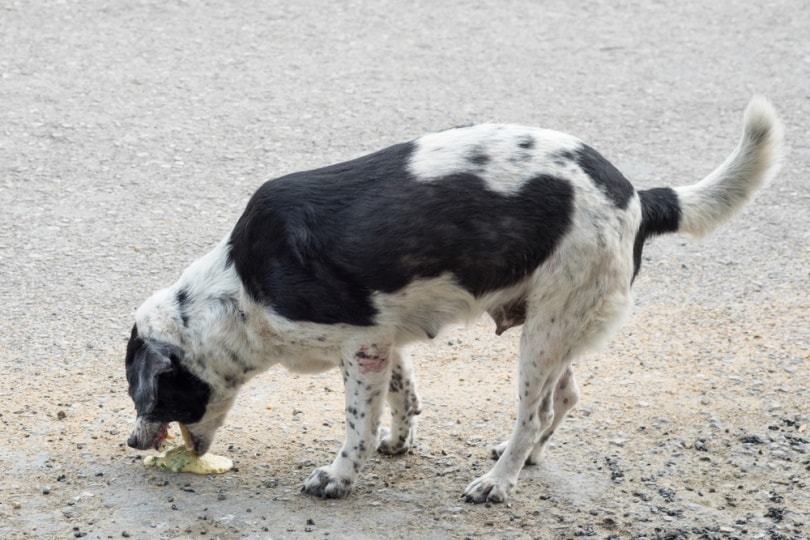
What to Do If Your Dog Has Ingested Tea Tree Oil
Call Your Veterinarian
If your dog has ingested tea tree oil, the first step is to contact your veterinarian. They will provide you with specific instructions on what to do next based on information like your dog’s size, the amount of tea tree oil ingested, and their current condition.
Provide Supportive Care
If your dog has ingested tea tree oil, they may experience dehydration, vomiting, and diarrhea. Giving your dog plenty of water is important to keep them hydrated. You can also provide them with a bland diet, such as boiled chicken and rice, to help ease their stomach.
Monitor Your Dog’s Condition
After your dog has ingested tea tree oil, monitor their condition closely. Watch for any worsening signs, and contact your veterinarian immediately if you notice any problems.
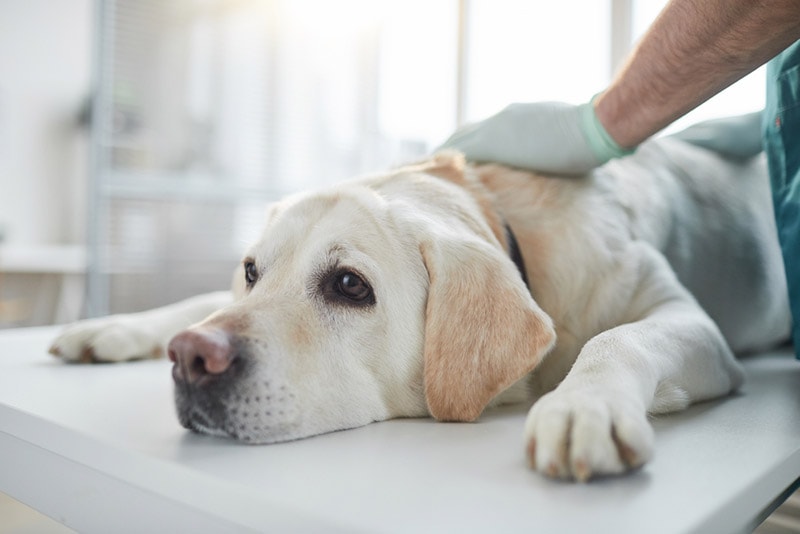
How Much Tea Tree Oil Is Toxic to My Dog?
According to some sources, a few drops of 100% oil can result in severe poisoning, and applications of 10 ml and more of 100% oil can result in poisoning and death. However, products containing less than 1–2% tea tree oil are non-toxic if used according to labeled directions. Factors like the dog’s size, weight, and overall health will also affect how much they can safely ingest.
Tips for Preventing Tea Tree Oil Toxicity in Dogs
- Keep tea tree oil products in a secure location where your dog can’t reach them.
- If you use tea tree oil products on your dog, such as pet-safe shampoos or skin treatments, follow the instructions carefully, and only use them in the recommended amounts.
- Always check the labels of household products like cleaners, soaps, and shampoos to ensure that they don’t contain tea tree oil or other harmful ingredients.
- If you have doubts about whether a product is safe for your dog, consult your veterinarian to learn about the best available options and products.

Conclusion
Tea tree oil can be toxic to dogs if ingested in large quantities, so it’s essential to contact your veterinarian immediately if you think that your dog ingested some. They will be able to determine the severity of your dog’s condition and provide the appropriate treatment. Follow your vet’s instructions closely, and monitor your pet for several hours to notice any new signs quickly. Keep tea tree oil products out of reach, and only use them in the recommended amounts to avoid accidentally poisoning your pet. Contact your vet for tips on the best pet-safe products to use in the household.
Featured Image Credit: ronstik, Shutterstock


